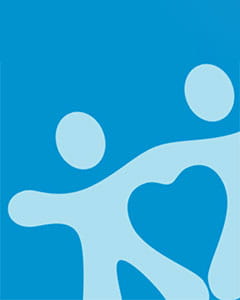Powdered caffeine is risky business: Why parents should be concerned.
Most of us look for a boost of energy in our morning (or afternoon) cup of coffee or tea. But what if I told you to just skip the regular cup of Joe and sprinkle some caffeine powder on your morning oatmeal or stir it in a fruit smoothie?
Caffeine powder has garnered a lot of attention lately, following the sudden death of high school senior, Logan Stiner, due to an overdose of caffeine powder. Stiner was a healthy high school wrestler and the prom king, just days away from graduation. But sadly, his dreams of going on to study at the University of Toledo would never be fulfilled, due to a lethal amount of caffeine consumed that led to his death.
What is caffeine powder and why is it so dangerous?
Caffeine powder contains pure, 100% caffeine and is commonly marketed as a weight loss supplement and energy enhancer. It is a relatively easy and cheap substance to buy in bulk online, and is not regulated by the Food and Drug Administration (FDA). Because the powder is highly concentrated, it can pack a punch. Merely 1/16 teaspoon provides about 200 mg of caffeine, which is equivalent to about two large cups of coffee. Consuming one teaspoonful of powdered caffeine is the equivalent of drinking roughly 25 cups of coffee- a potentially lethal dose in one teaspoon!
This highly concentrated powder is especially risky, given that the difference between a safe amount and a deadly dose is miniscule. Measuring a safe amount of caffeine powder with an everyday kitchen spoon is nearly impossible (some manufacturers include a tool to measure this small amount, but some do not) and one heaping teaspoon has the potential to kill. But despite the risks, the supplement is frequently used by teen athletes as a part of their pre-workout regime, or by others as a weight loss wonder.
What do I need to know as a parent?
The recommends limiting caffeine as much as possible from foods and beverages for adolescents, and avoiding it all together for children. It’s important to remember that even though caffeine is legal and commonly used in many foods and beverages, it is a drug that has potential side effects and can be a death sentence if used improperly.However, this potentially lethal drug is very accessible to teenagers. Take a minute to do a quick online search for caffeine powder, and you’ll see how easy it is for your kids to get their hands on it.
It’s important for parents to openly communicate with their kids about drugs and why they are harmful, including caffeine. If your child expresses the need for caffeine, then there is a larger issue going on that needs to be addressed. Is your child consuming caffeine because they are tired and lack energy? Then more sleep is probably the answer. Do they need a boost in energy to enhance their performance during workouts or sports practices and games? Encourage your child to drink more water for proper hydration and eat a pre-game snack to provide the healthy energy she needs.
If you are concerned about your child consuming too much caffeine, talk to your child’s primary care physician. For more information, see the Food and Drug Administration’s advice on powdered pure caffeine.







